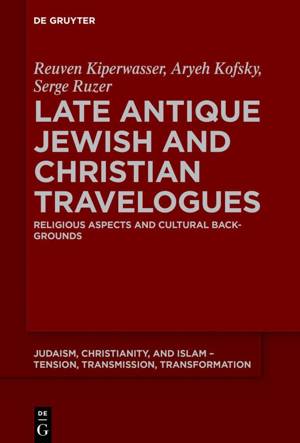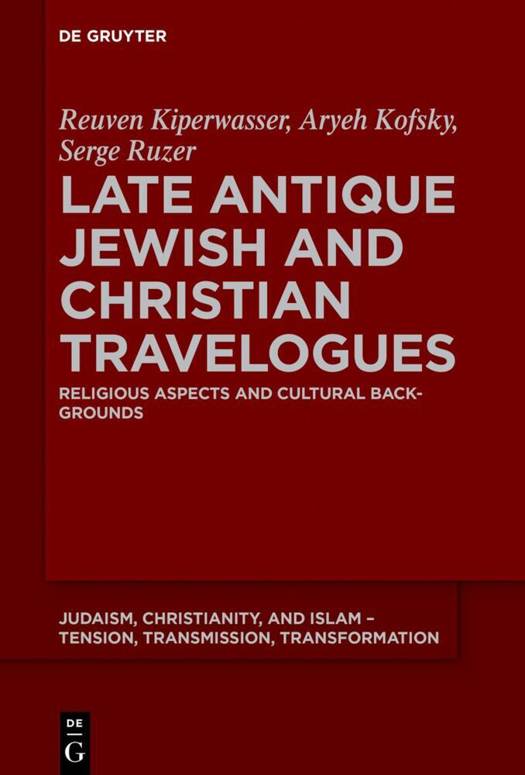
- Afhalen na 1 uur in een winkel met voorraad
- Gratis thuislevering in België vanaf € 30
- Ruim aanbod met 7 miljoen producten
- Afhalen na 1 uur in een winkel met voorraad
- Gratis thuislevering in België vanaf € 30
- Ruim aanbod met 7 miljoen producten
Zoeken
Late Antique Jewish and Christian Travelogues
Religious Aspects and Cultural Backgrounds
Reuven Kiperwasser, Aryeh Kofsky, Serge Ruzer
€ 111,45
+ 222 punten
Omschrijving
Focusing on travel narratives as a setting for spelling out both cultural exchanges and identity building, the present volume maps a variety of strategies employed in travelogues by Christians and Jews in the late antique Roman East.
The first part sheds light on the shared cultural background - folkloric or mythic - reflected in late antique Jewish and Christian sea-travel stories, and the various attempts to adapt it to a specific religious agenda. While the comparative analysis of the sources from two textual communities emphasizes their different religious agendas, it also allows for restoring patterns of the broader background with which they converse. The second part highlights Christian perceptions of the Land of Israel in missionary enterprises and in the eschatological visions.
The travelogues offer a window on the interplay between shared inheritance and new agendas within the dialectical development of religious traditions in Late Antiquity.
The first part sheds light on the shared cultural background - folkloric or mythic - reflected in late antique Jewish and Christian sea-travel stories, and the various attempts to adapt it to a specific religious agenda. While the comparative analysis of the sources from two textual communities emphasizes their different religious agendas, it also allows for restoring patterns of the broader background with which they converse. The second part highlights Christian perceptions of the Land of Israel in missionary enterprises and in the eschatological visions.
The travelogues offer a window on the interplay between shared inheritance and new agendas within the dialectical development of religious traditions in Late Antiquity.
Specificaties
Betrokkenen
- Auteur(s):
- Uitgeverij:
Inhoud
- Aantal bladzijden:
- 180
- Taal:
- Engels
- Reeks:
- Reeksnummer:
- nr. 27
Eigenschappen
- Productcode (EAN):
- 9783111564685
- Verschijningsdatum:
- 16/12/2024
- Uitvoering:
- Hardcover
- Formaat:
- Genaaid
- Afmetingen:
- 156 mm x 234 mm
- Gewicht:
- 458 g

Alleen bij Standaard Boekhandel
+ 222 punten op je klantenkaart van Standaard Boekhandel
Beoordelingen
We publiceren alleen reviews die voldoen aan de voorwaarden voor reviews. Bekijk onze voorwaarden voor reviews.











